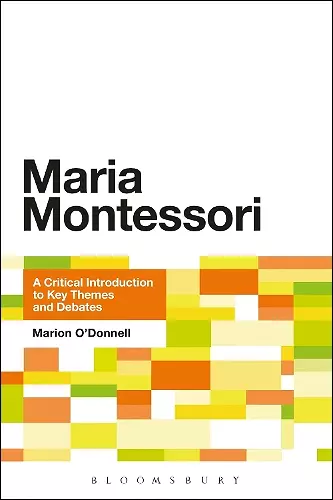Maria Montessori
A Critical Introduction to Key Themes and Debates
Format:Hardback
Publisher:Bloomsbury Publishing PLC
Published:17th Jan '13
Currently unavailable, and unfortunately no date known when it will be back

An insightful guide to this philosophy of education, covering its origins, features and practices.
Montessori students aged 3-18 study in a stress-free environment with no timetables, no examinations and no homework and yet they are independent and self-disciplined learners. This title considers the origins of Montessori education, examines the key themes of this philosophy of education and explores the relevance of Montessori practices.Maria Montessori considers the origins of Montessori education, examines the key themes of this philosophy of education and explores the relevance of Montessori practices today. Montessori students aged 3-18 study in a stress-free environment with no timetables, no examinations and no homework and yet they are empowered, independent and self-disciplined learners. The curriculum follows the interests of individual children and Montessori educators focus on the development of the whole child, promoting happiness and wellbeing. Marion O'Donnell explores the key aspects of Montessori education: child development; the learning environment; the role of the teacher; the role of the learner and parental involvement. Within each key aspect, Marion considers the implications for Montessori education, the views of critics and supporters, the implications for education today and the implications for research. Each aspect is considered within an international context, drawing on research and practice in Europe, the USA, South America, Australia and Asia.
This comprehensive critique provides enduring insights into the social and scientific pedagogy bequeathed to us by the late, great Dottoressa. O'Donnell writes with great perception about the universal natural laws of child development which underpin all of Maria Montessori's objective, analytical, clinical observations. She has not shirked from setting out Montessori philosophy within historical debates about 'naturalist' education research. Montessori's years of observations of children's activities in the early Casa dei Bambini informed her emergent theories and resulted in the ethnography which is The Montessori Method. In the words of the Dottoressa herself, 'teach little and observe much'. * Wendy Fidler, Academic Director, Montessori Education for Autism (MEfA), UK *
ISBN: 9781441134721
Dimensions: unknown
Weight: 472g
208 pages